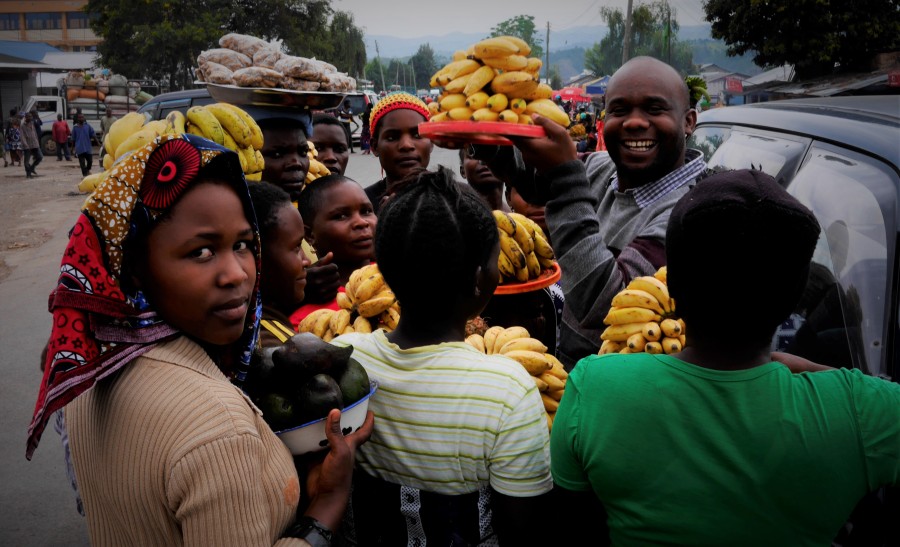For those interested in keeping tabs on what I’m doing, I realize I’ve not been so great lately at the updates. A reflection, I think, of me adapting back into a full time job, which has come as a slight shock to the system (and yes, I know, I’ll get little sympathy on that front).
Intense as it’s been, I’ve actually thoroughly enjoyed the work so far. By way of a recap, I’m with an organization called Equity for Tanzania (EFTA). It focuses on providing loans to small businesses for investment in equipment; it could be tractors, irrigation equipment, rice-hulling machines, brick-making machines or whatever. Much of the business is with farmers (given agriculture represents some 50% of employment here), but it also includes health, construction, education and other sectors contributing to Tanzania’s economic advancement.


Anyway, in terms of my own role, it’s been a fascinating learning experience to be involved at a grass-roots level. I’m realizing that, whilst it’s easy to be idealistic and purest about this sort of thing when you’re theorizing from afar, the realities on the ground are much more challenging. On the one hand, you want to maximize social impact. But at the same time, if you lose a lot of money on risky loans to particularly vulnerable people, you’ll be out of business and helping no-one. Often it’s a fine line, and since my role involves assessing and approving investments, I imagine it’s something I’ll be regularly grappling with; wanting to support fledgling businesses but knowing that, as an organization, EFTA can only take on a certain amount of risk.
One of the most interesting aspects of the role is trying to find opportunities to support small-holder farmers – ‘out-growers’, as they’re referred to, who sell their produce into a large agri-processor or centralized supplier. So far, I’ve visited a sugar processing factory, an avocado supplier, a tea factory and a milk processing plant (much to the amusement of my Dad and brother). I’ll have you know I can now tell you the seven processing steps of sugar, from cutting the cane through to packaging for the shops. I’ll save that for the pub when I’m back.

Some of the issues are remarkably similar to farming back home: heavy dependency on the weather, vulnerability to world market prices and so on. But other aspects are very different (average herd size for the milk factory is 1.2!)
I’m also enjoying the fact the role involves significant travel around Tanzania. It’s opening my eyes to the huge potential of the country’s agriculture sector (an interesting contrast to this week’s famine news from elsewhere in E.Africa.) Apart from my ‘home’ base around Moshi and Arusha in the north, I’ve visited sugar farms near the Ugandan border, and maize and horticulture farmers in Mwanza and Bukoba on the shores of the beautiful Lake Victoria (where I got to sample the delicious tilapia fish that’s a staple diet there). This past week I’ve been in the maize and dairy region near Njombe in the south (apparently Tanzania’s coldest town), and the lush banana, coffee, tea and avocado plantations around Mbeya (also the home of Tanzania’s rice production and a centre for what are known here as ‘Irish potatoes’!). Tomorrow, I’ll be getting my first experience of Dar es Salaam.



* EFTA aims to address financing for what’s often referred to as the ‘missing middle’: the fact that small and medium sized businesses in developing economies often find it very difficult to access loans for investment. Small entrepreneurs can get ‘micro-finance’, and larger ones can go to the banks. But small businesses, which could potentially be the life-blood of the economy, struggle to get access to capital.






Makes teachin in rouen sound very boring ..
! So hope i’ll get to share a tiny experience out there with you ? Looks amazing …Who knows …
Great pics too ( bring me back some avocadoes ? ) kisses
Thank you Alan. What a fabulous read. Sitting here in London even with the sun poking through seems very grey in contrast. Such a wonderful antidote to the dire famine, drought and war news!
Lots of love and have fun in Dar es Salaam